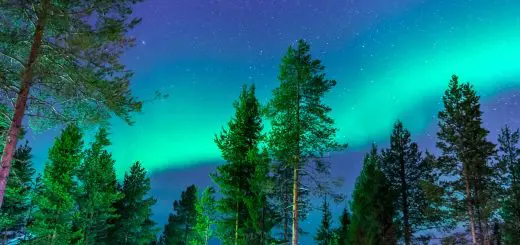Diwata Tributes: Honoring Nature Deities in Rituals

Looking for more amazing products? Check out our online store and explore our collection here! Happy shopping!
Before diving in, please note: This post is for informational purposes only. If you’d like to know more about how we approach topics, feel free to check out our friendly Disclaimer Page.
Hey there, amazing readers! 
We’re committed to delivering quality posts, and your support (even just sticking around despite the ads) means everything to us. So, bear with us, and thanks for helping us keep the good vibes rolling. Now, on to the fun stuff!
TRANSLATE BUTTON AT THE END OF THE ARTICLE
A Quick Overview
In many cultures around the world, the honoring of nature deities is a deeply rooted tradition that reflects the importance of the natural world in people’s lives.
In the Philippines, the indigenous people have long held a belief in Diwatas, or nature spirits, and have developed various rituals to pay homage to these deities.
Diwata tributes are a way to show respect and gratitude to the spirits that are believed to inhabit the mountains, forests, rivers, and seas.
These rituals are not just about offering material goods but also about establishing a spiritual connection with the natural world.
This article will delve into the significance of nature deities, the traditional beliefs surrounding Diwatas, the rituals involved in honoring them, and the impact of these practices on culture and society.
Understanding Diwata Tributes
Diwatas are revered as powerful nature spirits in Philippine folklore, believed to reside in various natural elements such as trees, rocks, water bodies, and mountains.
They are seen as guardians of the environment and are thought to possess the ability to bring blessings or calamities upon people.
Diwata tributes are a way to acknowledge the presence and influence of these spirits in everyday life and to seek their favor and protection.
The rituals performed are meant to establish a harmonious relationship between humans and nature and to maintain the balance and order of the natural world.
Significance of Nature Deities
Nature deities, including Diwatas, hold a significant place in the spiritual beliefs of many indigenous communities.
They are seen as intermediaries between humans and the natural world, capable of influencing the physical and spiritual realms.
By honoring these deities, people express their gratitude for the gifts of nature, seek their guidance and protection, and acknowledge the interconnectedness of all living beings.
The rituals associated with nature deities are meant to instill a sense of respect for the environment and to remind individuals of their role as stewards of the Earth.
Traditional Beliefs of Diwatas
In traditional Philippine folklore, Diwatas are often depicted as benevolent spirits who possess great wisdom and power.
They are believed to communicate with humans through dreams, visions, and signs in nature.
Diwatas are revered for their ability to heal the sick, protect the community from harm, and bring abundance and prosperity to the land.
People consult Diwatas for guidance in times of need, offering prayers, rituals, and sacrifices as a sign of respect and devotion.
The beliefs surrounding Diwatas have been passed down through generations, forming an integral part of the cultural heritage of indigenous communities.
Rituals Honoring Diwatas
Rituals honoring Diwatas are typically performed in sacred spaces such as forests, riversides, or mountain peaks, where the presence of nature spirits is believed to be strongest.
These rituals often involve offerings of food, flowers, incense, and other symbolic items that are meant to please the spirits and show reverence.
Participants in the rituals may engage in prayer, chanting, dancing, and other forms of worship to invoke the blessings of the Diwatas.
The rituals are conducted with great solemnity and respect, reflecting the deep spiritual connection that people feel towards the natural world.
Connecting with Nature Spirits
Connecting with nature spirits through Diwata tributes is seen as a way to establish a harmonious relationship with the environment and to seek guidance and protection from the unseen forces of nature.
By acknowledging the presence of Diwatas in the world around them, people can cultivate a sense of awe and wonder for the natural world and develop a deeper appreciation for its beauty and complexity.
The rituals associated with nature deities help individuals to feel connected to something greater than themselves and to recognize the sacredness of all living beings.
Practices of Diwata Worship
Diwata worship involves a variety of practices that are designed to honor and appease the nature spirits.
These practices may include offerings of fruits, flowers, rice, or livestock, as well as rituals such as dances, songs, and storytelling.
Participants in Diwata worship ceremonies may also engage in meditation, trance, or divination to communicate with the spirits and receive their blessings or guidance.
The practices of Diwata worship are highly symbolic and are meant to convey respect, gratitude, and humility towards the natural world and its inhabitants.
Offerings to Diwatas
Offerings play a central role in Diwata tributes as a way to show respect and gratitude to the nature spirits.
The items presented as offerings are carefully chosen to reflect the significance of the occasion and the relationship between humans and the spirits.
Common offerings include fruits, flowers, rice cakes, candles, incense, and other symbolic objects that are believed to please the Diwatas.
Offerings are typically placed on altars or shrines dedicated to the spirits and are accompanied by prayers, chants, and rituals to invoke their blessings and protection.
Role of Diwata Tributes in Culture
Diwata tributes play a crucial role in preserving the indigenous traditions and cultural heritage of the Philippines.
These rituals are not only a form of spiritual practice but also a way to pass down ancient knowledge, beliefs, and values from one generation to the next.
By upholding the customs of Diwata worship, communities can maintain a sense of identity and connection to their ancestral roots.
The rituals also serve as a means of fostering social cohesion and solidarity among community members, reinforcing the shared values and beliefs that underpin their way of life.
Preserving Indigenous Traditions
The practice of Diwata tributes is essential for the preservation of indigenous traditions that are at risk of being lost in the face of modernization and globalization.
By continuing to honor nature deities and perform rituals that have been passed down for centuries, communities can safeguard their cultural heritage and maintain a sense of continuity with the past.
Preserving indigenous traditions is not just about holding onto the past but also about adapting and evolving these practices to suit the changing needs and circumstances of contemporary society.
Through the preservation of Diwata worship, communities can ensure that their unique cultural heritage remains alive and vibrant for future generations.
Modern Interpretations of Diwata Worship
In recent years, there has been a resurgence of interest in Diwata worship among younger generations in the Philippines.
Modern interpretations of these rituals seek to blend traditional beliefs with contemporary practices, incorporating elements of environmental conservation, sustainable living, and social activism.
Diwata worship is no longer confined to remote villages or tribal communities but has become a part of the broader cultural landscape, influencing art, literature, music, and fashion.
By reimagining Diwata tributes for the modern age, people can find new ways to connect with nature, promote ecological awareness, and foster a sense of unity and belonging within the global community.
Impact of Diwata Rituals
The practice of Diwata rituals has a profound impact on individuals, communities, and the environment as a whole.
By honoring nature deities and cultivating a deeper connection with the natural world, people can develop a sense of responsibility towards the Earth and its inhabitants.
Diwata tributes promote respect for the environment, encourage sustainable living practices, and foster a sense of harmony and balance with nature.
These rituals also have a social and cultural impact, bringing communities together, strengthening bonds between people, and preserving the rich heritage of indigenous traditions.
The impact of Diwata rituals extends far beyond the physical realm, touching the hearts and minds of those who participate in these sacred practices.
Importance of Honoring Nature Deities
Honoring nature deities through Diwata tributes is essential for maintaining the balance and harmony of the natural world and for preserving the spiritual connection between humans and the environment.
By acknowledging the presence of Diwatas in the world around them, people can cultivate a sense of awe and wonder for the beauty and complexity of nature.
The rituals associated with nature deities serve as a reminder of the interconnectedness of all living beings and the importance of respecting and protecting the Earth.
Through Diwata worship, individuals can find solace, guidance, and inspiration in the wisdom of the natural world, fostering a sense of humility and gratitude for the gifts of the Earth.

The Enlightenment Journey is a remarkable collection of writings authored by a distinguished group of experts in the fields of spirituality, new age, and esoteric knowledge.
This anthology features a diverse assembly of well-experienced authors who bring their profound insights and credible perspectives to the forefront.
Each contributor possesses a wealth of knowledge and wisdom, making them authorities in their respective domains.
Together, they offer readers a transformative journey into the realms of spiritual growth, self-discovery, and esoteric enlightenment.
The Enlightenment Journey is a testament to the collective expertise of these luminaries, providing readers with a rich tapestry of ideas and information to illuminate their spiritual path.
Our Diverse Expertise
While our primary focus is on spirituality and esotericism, we are equally passionate about exploring a wide range of other topics and niches 

To ensure we provide the most accurate and valuable insights, we collaborate with trusted experts in their respective domains 
Our blog originally focused on spirituality and metaphysics, but we’ve since expanded to cover a wide range of niches. Don’t worry—we continue to publish a lot of articles on spirituality! Frequently visit our blog to explore our diverse content and stay tuned for more insightful reads.
Hey there, amazing reader! 
Check out our store here and take a peek at some of our featured products below! Thanks for being awesome!












